Why the far right are on the rise again in Germany
Germans believed their country had developed an immunity to nationalism after confronting past horrors. They were wrong
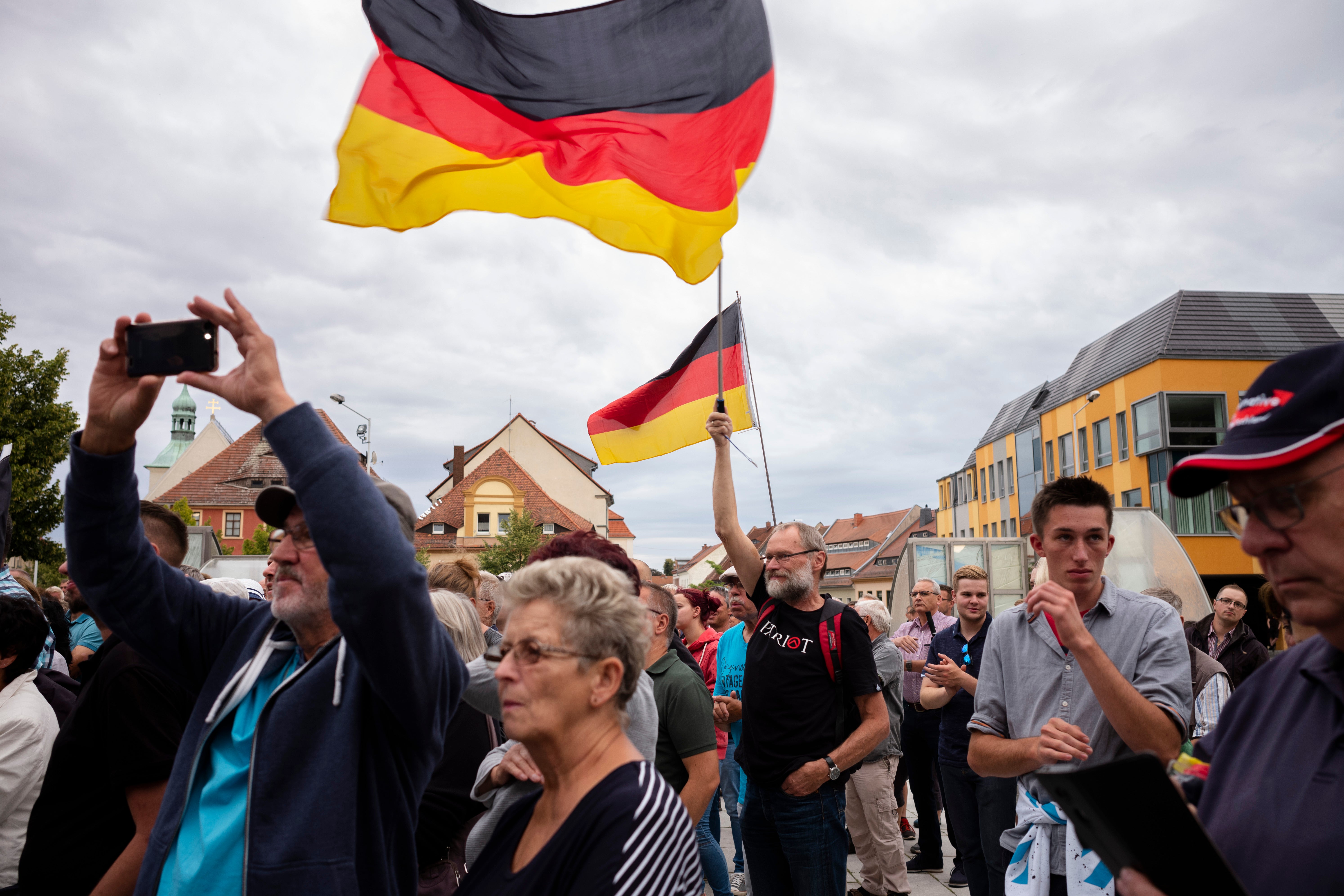
Your support helps us to tell the story
From reproductive rights to climate change to Big Tech, The Independent is on the ground when the story is developing. Whether it's investigating the financials of Elon Musk's pro-Trump PAC or producing our latest documentary, 'The A Word', which shines a light on the American women fighting for reproductive rights, we know how important it is to parse out the facts from the messaging.
At such a critical moment in US history, we need reporters on the ground. Your donation allows us to keep sending journalists to speak to both sides of the story.
The Independent is trusted by Americans across the entire political spectrum. And unlike many other quality news outlets, we choose not to lock Americans out of our reporting and analysis with paywalls. We believe quality journalism should be available to everyone, paid for by those who can afford it.
Your support makes all the difference.When Sabine Thonke joined a recent demonstration in Berlin against Germany's far-right party, it was the first time in years she felt hopeful that the growing power of the extremists in her country could be stopped.
Thonke, 59, had been following the rise of the Alternative for Germany, or AfD, with unease. But when she heard about a plan to deport millions of people, she felt called to action.
“I never thought such inhuman ideas would be gaining popularity in Germany again. I thought we had learned the lessons from our past," Thonke said.
Many Germans believed their country had developed an immunity to nationalism and assertions of racial superiority after confronting the horrors of its Nazi past through education and laws to outlaw persecution.
They were wrong.
If an election were held today, the AfD would be the second largest party, according to polls.
But national polls camouflage an important division: the AfD has disproportionate support in the formerly communist and less prosperous eastern states of Germany.
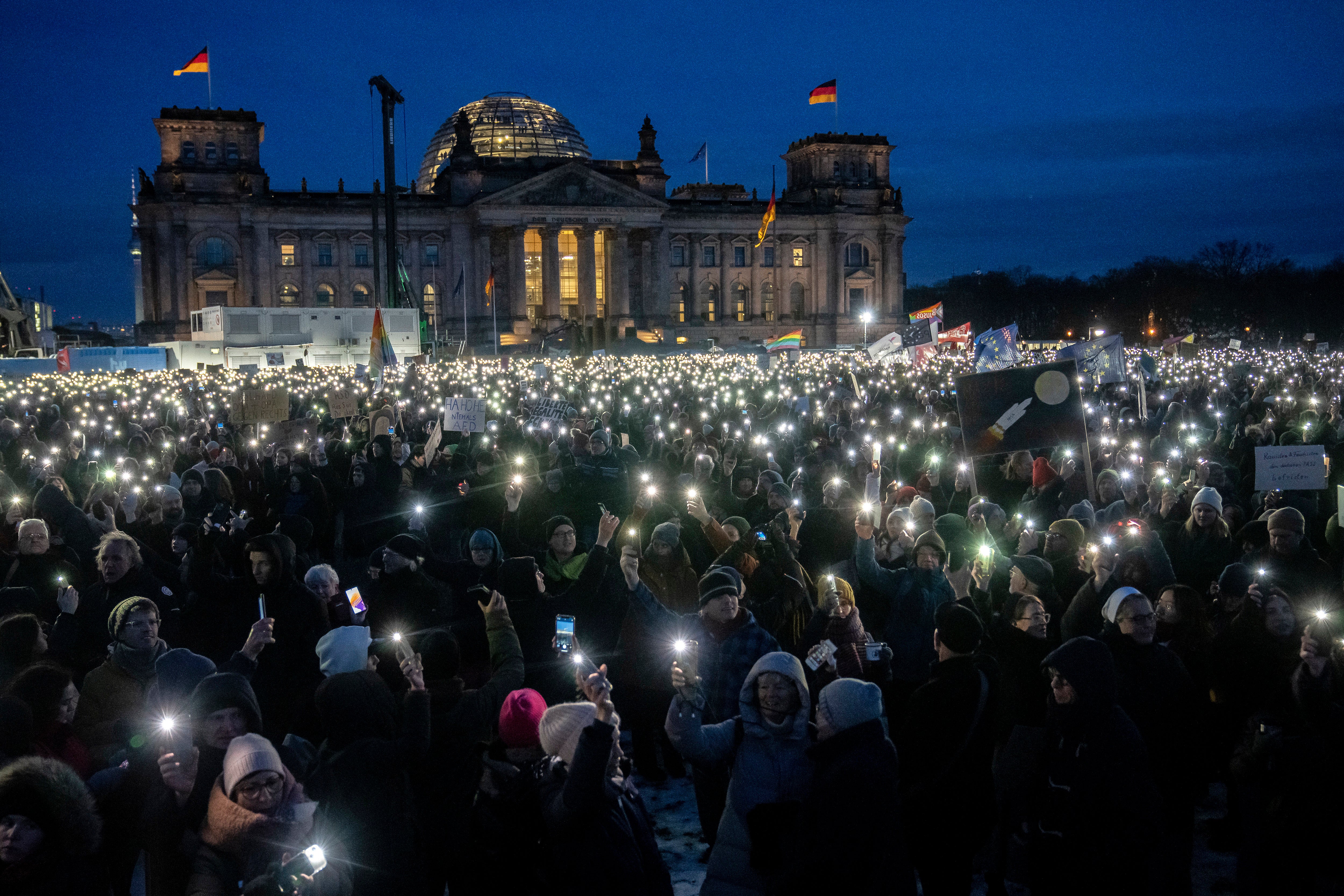
After the fall of communism in 1989 and the unification of East and West Germany a year later, many people in the five eastern states lost not only their jobs but their collective past, leaving them disoriented and helpless in the capitalist system.
The AfD's rise has been propelled by anger over inflation and, above all, rising immigration. The EU received 1.1 million asylum requests in 2023, the highest number since 2015. Germany got by far the largest number of claims — more than 300,000 — mostly from Syria, Afghanistan and Turkey. The country has also taken in more than a million Ukrainian refugees displaced by Russia's invasion.
Voters in Germany and across Europe are increasingly empowering far-right nationalist parties who promise to restrict immigration and, in some cases, constrain democratic freedoms of religion, of expression, of the right to protest. These forces have bubbled up in France, Italy, the Netherlands and Austria.
Lessons of the Second World War
After 1945, West Germans grew up with the guiding principle that there should “never again” be a dictatorship on German soil. West German leaders made visits to Israel and apologized to the countries occupied by the Nazis, while schoolchildren were taken to see concentration camps or Holocaust memorials.
But in the East, a self-declared anti-fascist society, young people were taught that they were only the descendants of the Nazis’ victims.
Thonke, who works at Berlin's water utility, grew up in Bavaria, which was part of West Germany before reunification in 1990. She said she did not speak much with her grandparents — the Nazi generation — about what happened during the Third Reich, but learned about Adolf Hitler’s rise to power and the Holocaust in school.
Today’s far right is using similar tactics, she said, exploiting people's fears to win their trust and their votes.
“I understand that many people are worn out from all these crises — the coronavirus pandemic, the war in Ukraine, the many migrants, inflation — and that they are afraid that things are going to get worse,” Thonke said. “But the solutions the AfD offers won’t solve any of these problems.”
Polls show the AfD as the top party in the eastern states of Saxony and Thuringia, with roughly 35% support in each. Both states have elections this fall, along with the eastern state of Brandenburg, where the AfD is also expected to make strong gains.
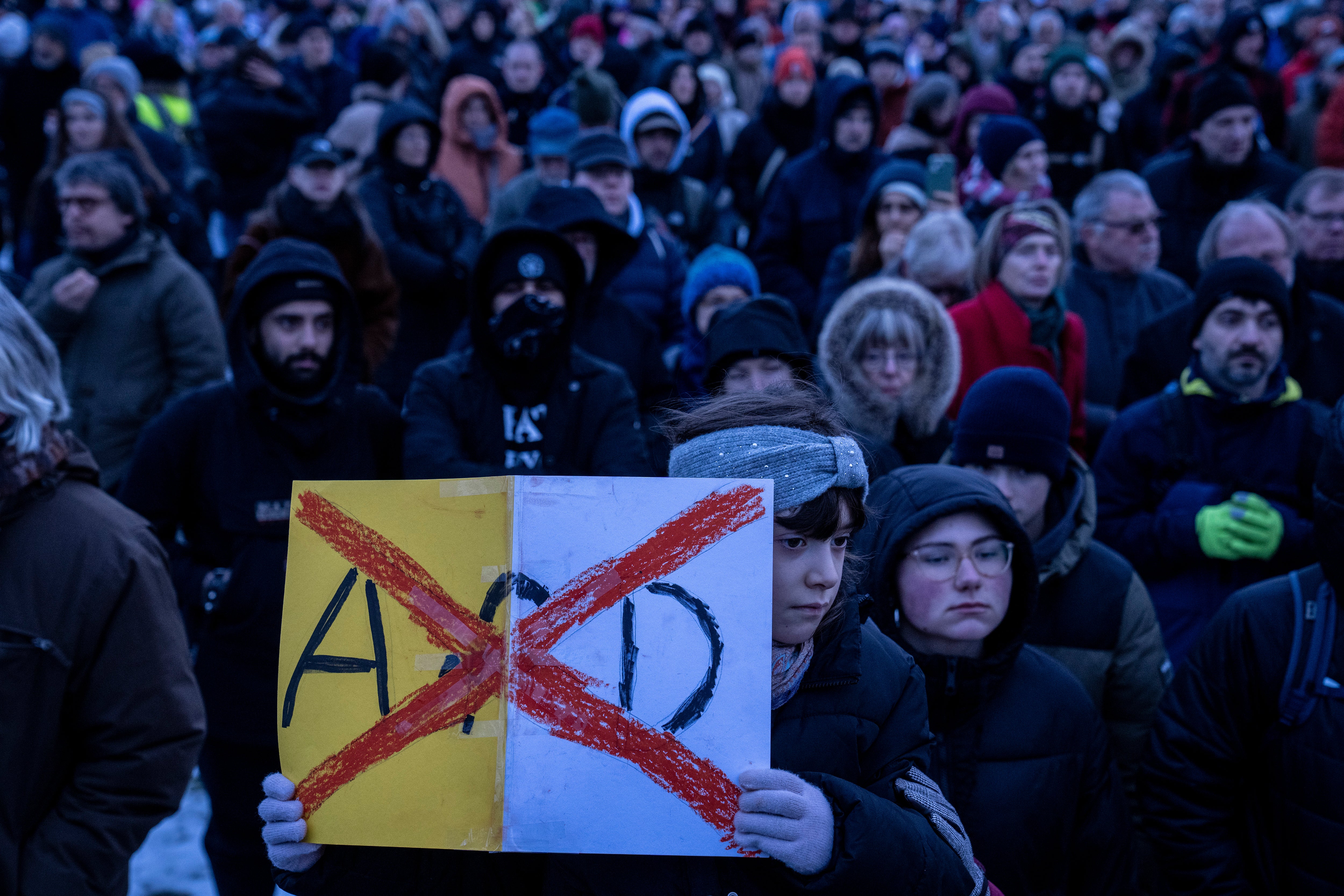
The AfD's appeal is particularly strong among men and, increasingly, younger voters.
In the last state elections in Hesse and Bavaria in October, AfD made significant gains among voters 24 and younger, which experts attributed to young voters’ frustration with migration and the party’s savvy internet presence. About two-thirds of the party's voters are men.
The party has benefitted from voters’ deep frustration with Chancellor Olaf Scholz. His government came to power over two years ago with a progressive, modernizing agenda, but now is viewed by many as dysfunctional and incapable.
The AfD’s Thuringia branch is particularly radical and was put under official surveillance by the domestic intelligence service four years ago as a “proven right-wing extremist” group.
AfD’s Thuringia leader, Bjoern Hoecke, has at various times espoused revisionist views of Germany’s Nazi past. In 2018, he called the Holocaust memorial in Berlin a “monument of shame” and called for Germany to make a “180-degree turn” in the way it remembers its past.
“The AfD is a nationalist party, and nationalists want to be proud of their history, and anyone who wants to be very proud of German history must of course minimize, play down, or even deny the shame of the Nazi crimes in order to be able to tell the story of national greatness,” said Jens-Christian Wagner, a historian and the head of the Buchenwald Memorial, a former concentration camp in Thuringia, where the Nazis killed more than 56,000 people.
Attacks on the former concentration camp have stepped up massively in recent months: Wagner says this is because of the “revisionist, antisemitic and racist slogans” promoted by the AfD.
Wake-up call
Since January, a wave of protests against the far right has swept across Germany, triggered by a report that right-wing extremists met to discuss the deportation of millions of immigrants, including some with German citizenship.
AfD members were present at the meeting, along with Martin Sellner, a persuasive young Austrian with neo-Nazi links and convictions for violent extremism.
The meeting, in November, bore an eerie resemblance to the Wannsee Conference, when the Nazis agreed to the so-called “final solution" — the systematic round-ups that led to the murder of 6 million Jews.
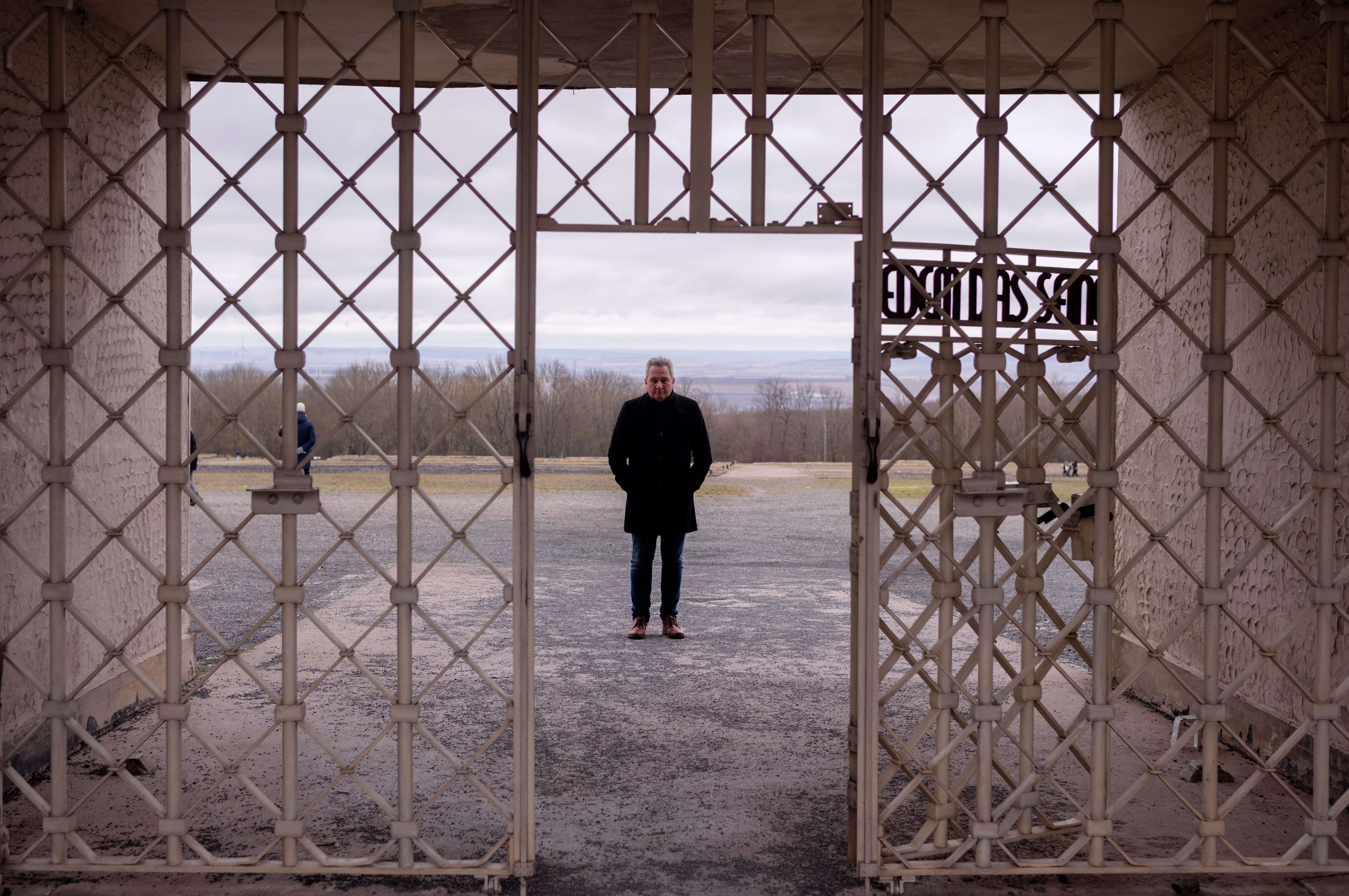
Just like in the winter of 1942, when senior Nazi officials met covertly in a villa by a lake outside Berlin, the recent meeting also took place in secrecy at a villa not far from the German capital.
Week after week, millions of Germans have turned out to protest, attending events with slogans such as “Never Again is Now,” “Against Hate” and “Defend Democracy.”
Demonstrations in cities such as Berlin, Munich, Hamburg or Duesseldorf, have drawn hundreds of thousands of participants at a time — so many that authorities have had to end some marches early due to safety concerns with overcrowded streets.
People also turned out for protests in smaller towns and even held weekly vigils in their neighborhoods to express their frustration with growing support for far-right populism at the ballot box.
More than 2.4 million people have so far joined the anti-AfD protests which began in mid-January, according to the German interior ministry. The organizers of the demonstrations estimate more than 3.6 million people have participated.
Among them was Thonke, who went to two pro-democracy rallies in Berlin, relieved that the country was, as she put it, “waking up.”
“I no longer have this feeling of powerlessness that I had during the last years while watching the rise and success of the AfD," she said, adding that the government must do more.
“The government needs to find solutions for the migration crisis, otherwise the AfD will continue to exploit this topic for their own purposes and become even more powerful," she said.
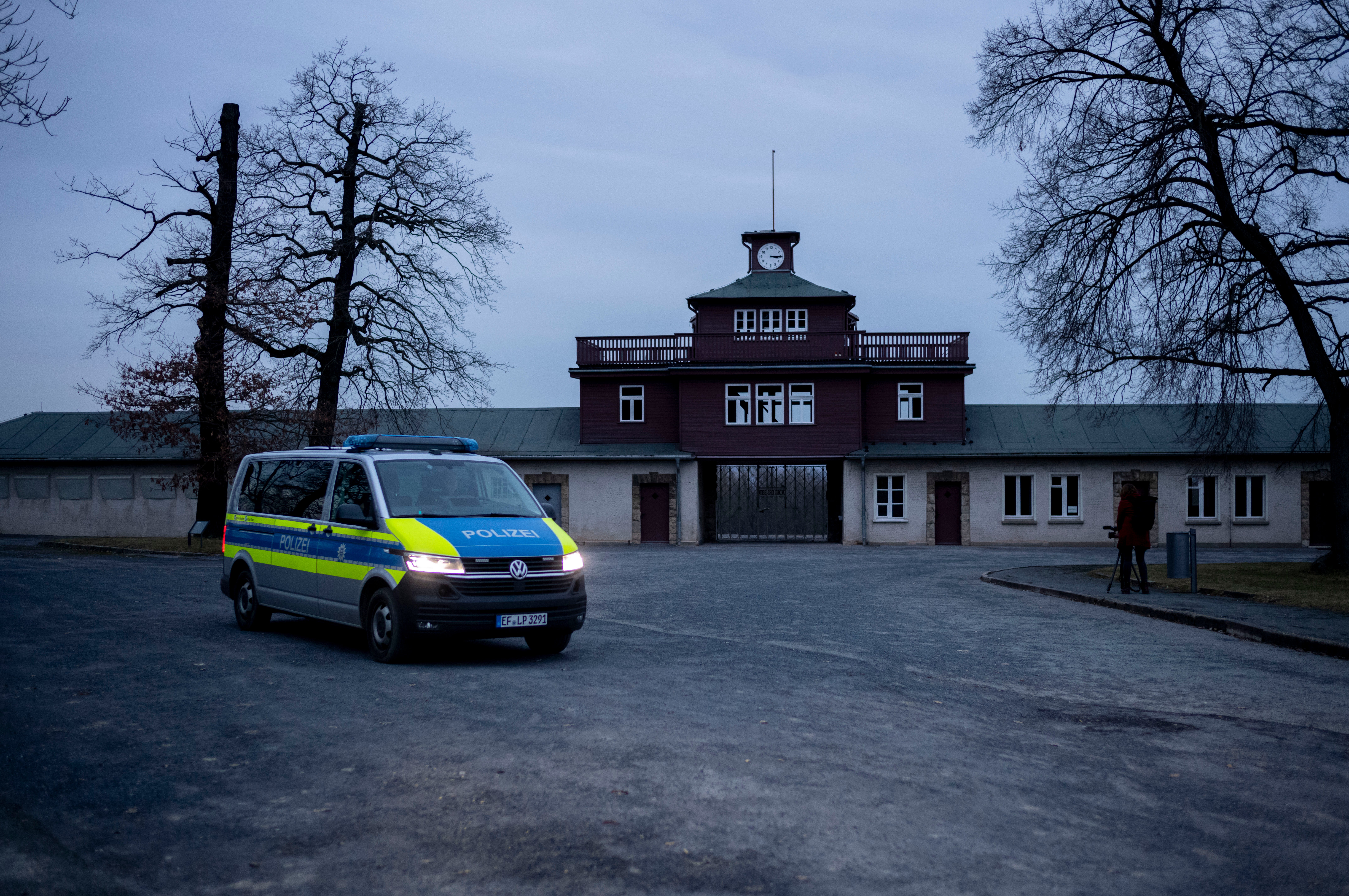
Earlier waves of protests against the anti-Islam and anti-immigration movement PEGIDA eventually ran out of steam, although they weren't as large as the anti-AfD movement that is building.
Still, the AfD is riding high. In December, it marked another milestone, when for the first time its candidate won a mayoral election in a midsized town: Pirna, in Saxony.
Now the party is setting its sights on elections for the European Parliament in June. If Thonke and her fellow protesters want to push back the far right, they will have to persuade their compatriots not just to protest, but to turn out in large numbers at the ballot box.